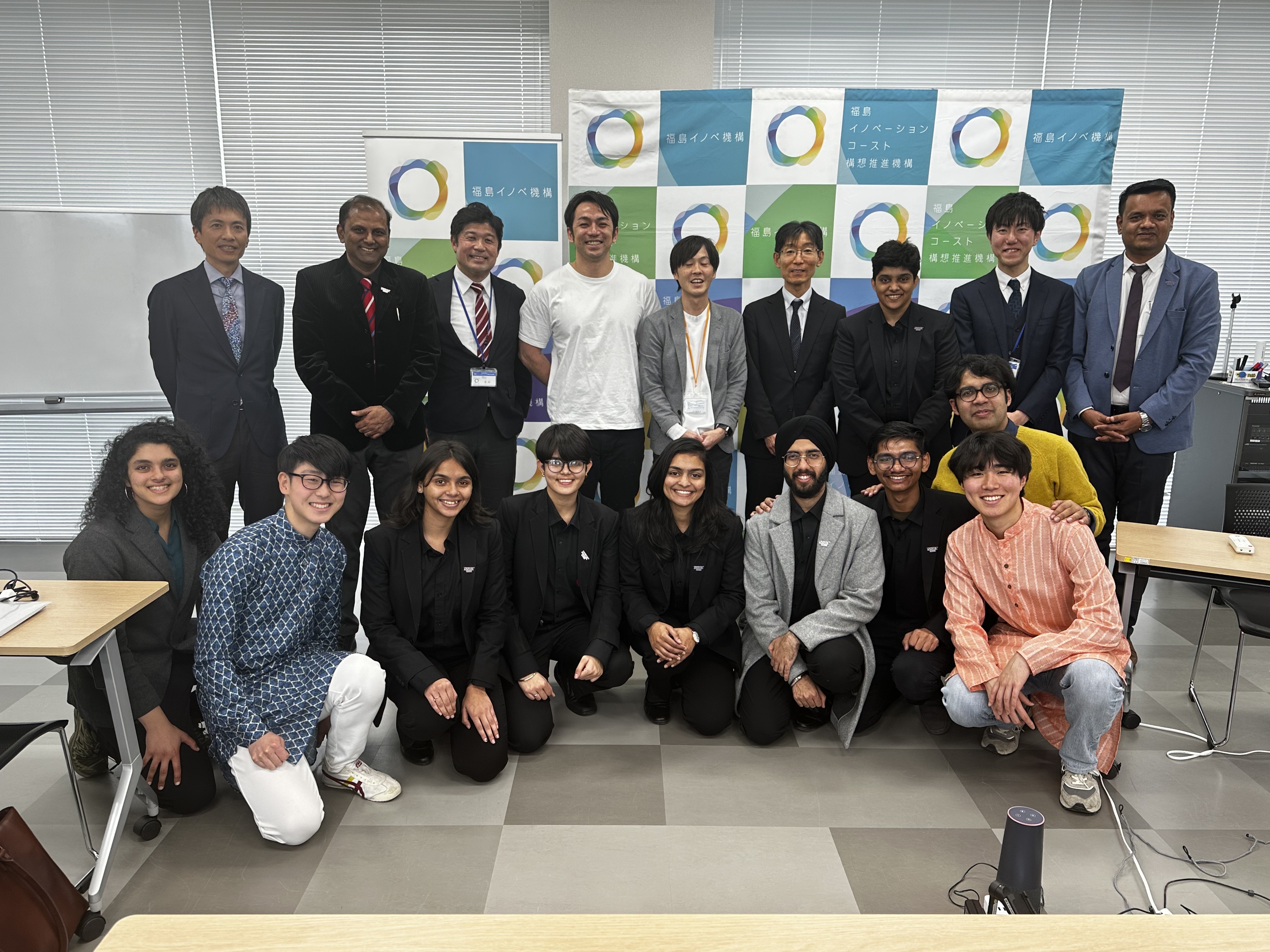
The Fukushima Socio-Industrial Immersion Program, hosted by FIPO and organized by F-ATRAs, provided Indian students with a deep dive into Fukushima’s recovery and innovation efforts. Over three weeks, participants explored pioneering industries, engaged in cultural exchanges, and gained firsthand insights into the region’s resilience.
Note: This content belongs to a 5-part report about the Fukushima Socio-Industrial Experience Program sponsored by Fukushima Innovation Coast Framework (FIPO) and conducted by F-ATRAs (Futaba Area Tourism Research Association) in January, 2025.
On January 28, 2025, the Fukushima Socio-Industrial Experience Program concluded with a series of insightful presentations by Indian students from NSBT (Nath School of Business and Technology) and Tohoku University. The event, held at the Okuma Incubation Centre, showcased detailed analyses of five prominent organizations in the region: Tomioka Wine Domain, Asano Nenshi, inVisible, Okuma Nexus Farm, and Nissan’s Namie Smart Mobility initiative.
The presentations highlighted both challenges and innovative solutions for businesses operating in Fukushima’s recovering communities. At Tomioka Wine Domain, students identified opportunities for luxury wine tourism, drawing parallels with successful models like Nashik, India’s wine capital. Their proposals included immersive experiences such as vineyard tours, glamping facilities, and cultural festivals that could attract visitors while preserving the region’s unique identity.
For Asano Nenshi, the world’s first yarn twisting factory, students proposed an integrated branding strategy that would connect the company’s innovative SUPER ZERO® technology with Futaba’s resilience narrative. They also identified promising opportunities in India’s growing textile market, particularly in Aurangabad’s industrial hub.
The analysis of Okuma Nexus Farm revealed challenges in workforce management, leading to proposals for international knowledge exchange programs and domestic outreach initiatives. Students suggested collaborations with agricultural enterprises in India and Indonesia to share technical expertise while addressing labor shortages.
Nissan’s Namie Smart Mobility project received recommendations for enhancing user engagement through multilingual app features and tourism-centric services. Students emphasized the importance of making the mobility system more visible and accessible to visitors, potentially increasing active user participation beyond the current 15% rate.
For inVisible, the non-profit organization using art to address social issues, students proposed digital engagement strategies to overcome human resource limitations and financial constraints. A particularly notable suggestion was the global scaling of their PinS Project, with potential implementation in Aurangabad schools to foster stronger Indo-Japanese cultural ties.
The presentations demonstrated how cross-cultural perspectives could contribute to Fukushima’s revitalization efforts. By drawing parallels between Indian and Japanese business models and suggesting collaborative solutions, the students highlighted the potential for international cooperation in addressing local challenges.
